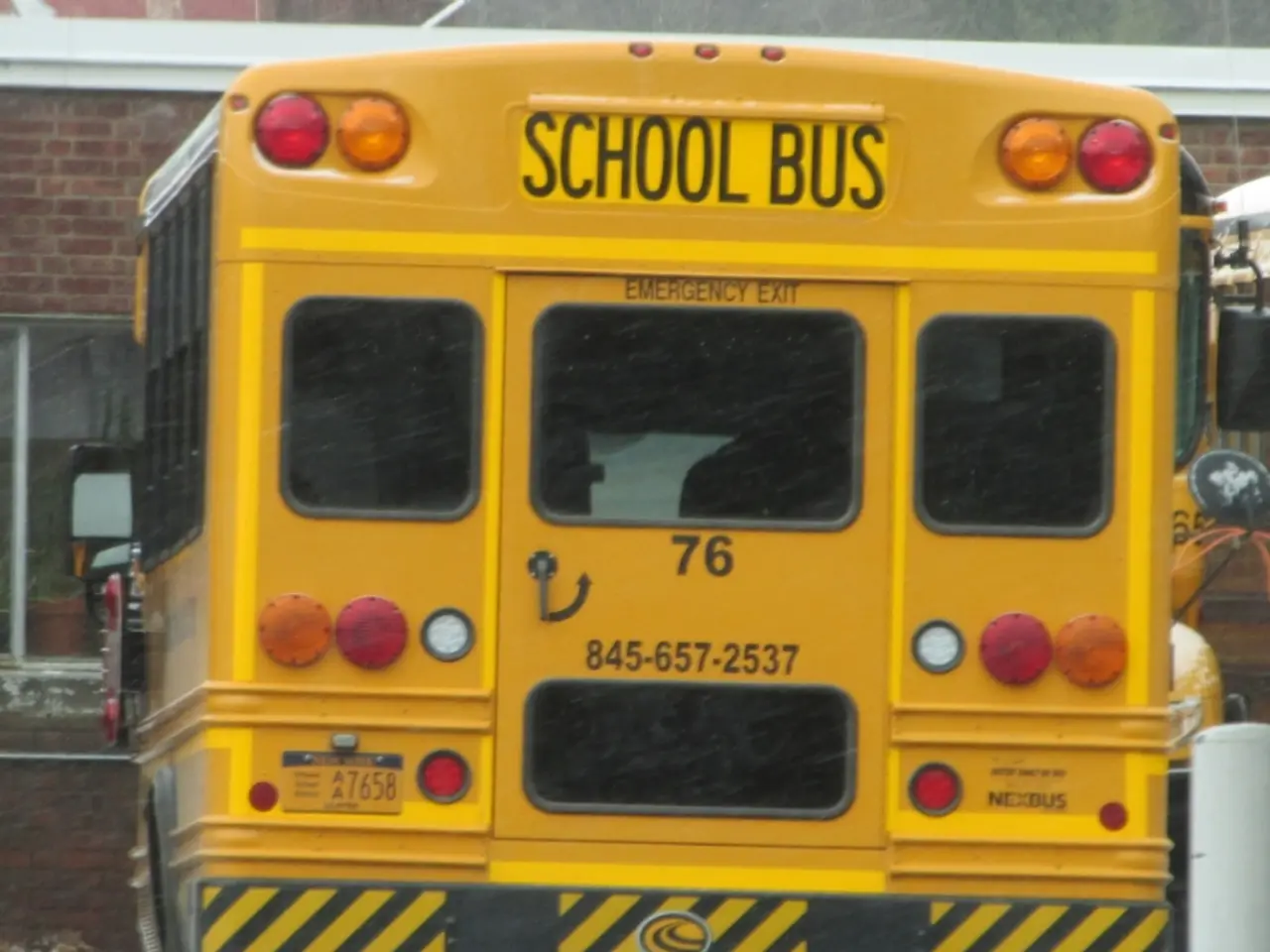Schoolwide cell phone prohibition has been dropped
In Baden-Württemberg, a new approach to digital education is taking shape as schools prepare for the upcoming academic year. The focus is on a mobile phone ban during lessons, breaks, and after-school care, with the exception of instances where devices are used for educational purposes.
The policy, which aligns with similar measures in other German states, aims to foster a learning environment that encourages students' attention, social interaction, and protects against digital overload. This ban is part of a broader strategy to strike a balance between digital learning and minimizing distractions.
For teachers, this means enforcing the rules as part of the school's house rules, which should be developed collaboratively with the entire school community, including parents and school conferences. The regulations emphasize that schools are not digital-free zones but require controlled and pedagogically appropriate use of digital tools.
Students, particularly those in primary schools, are encouraged to engage more in play, relaxation, and face-to-face communication during school hours, limiting screen time. Secondary schools are also encouraged to review and discuss their policies.
The state government of Germany supports these regulations and is working towards creating legal foundations for a mobile phone ban in schools. The school law amendment will allow schools to make their own regulations regarding mobile phone usage.
The Ministry of Culture will provide guidelines, formulation suggestions, and sample school regulations before the start of the holidays. Minister President Winfried Kretschmann, a former teacher himself, has expressed his support for the mobile phone ban in schools.
However, the regulations are not without controversy. Critics argue that teachers are often left to handle payment demands for damaged hardware and feel unsupported. There are also calls for clarification on liability issues, particularly if a submitted phone gets damaged.
The Ministry of Culture may intervene by regulation if it is found that the scope of the mobile phone ban is not used often enough in primary schools. Different regulations are needed for primary schools, secondary schools, and vocational schools regarding mobile phone usage.
The discussion around mobile phone usage extends to media education, with the importance of teaching responsible digital device use emphasized. The GEW, the State Parents' Council, and the State Students' Council have called for value education on responsible digital device use, including comprehensive and regular teacher training, adapting teaching plans, and integrating media didactics into teacher training.
The need for 'digital caretakers' in schools to relieve teachers and school management has also been suggested. As the new school year approaches, schools in Baden-Württemberg are preparing to implement these changes, shaping the future of digital education in the region.
[1] Source: Staatsanzeiger subscription required.
- The new approach to digital education in Baden-Württemberg, which includes a mobile phone ban during lessons and breaks, aligns with the policy-and-legislation being implemented in other German states, aiming to create a more focused learning environment for students and balanced digital learning experiences (education-and-self-development).
- The state government's support for the mobile phone ban in schools is part of general-news in Germany, with the Ministry of Culture providing guidelines and formulation suggestions for the school law amendment, which will eventually allow schools to make their own regulations regarding mobile phone usage, affecting teachers, parents, and students (politics).




